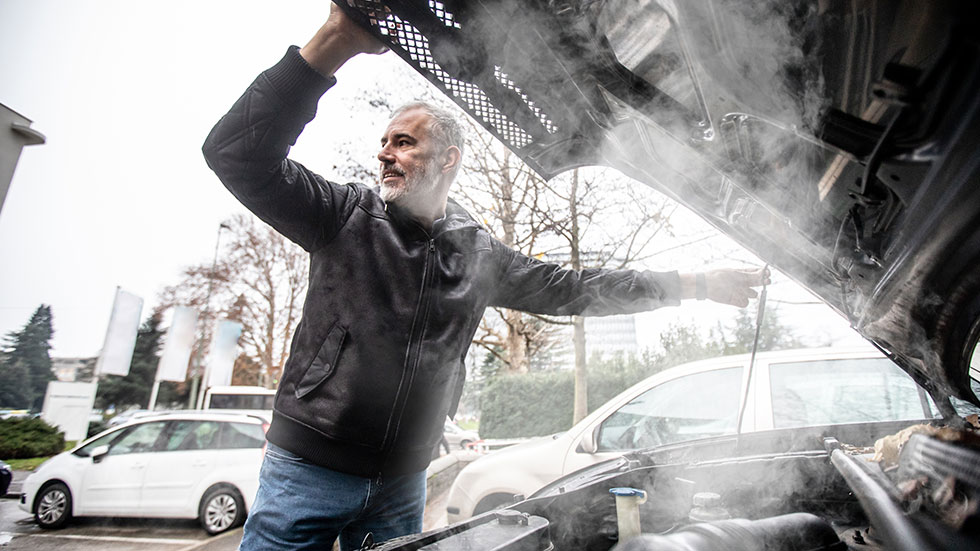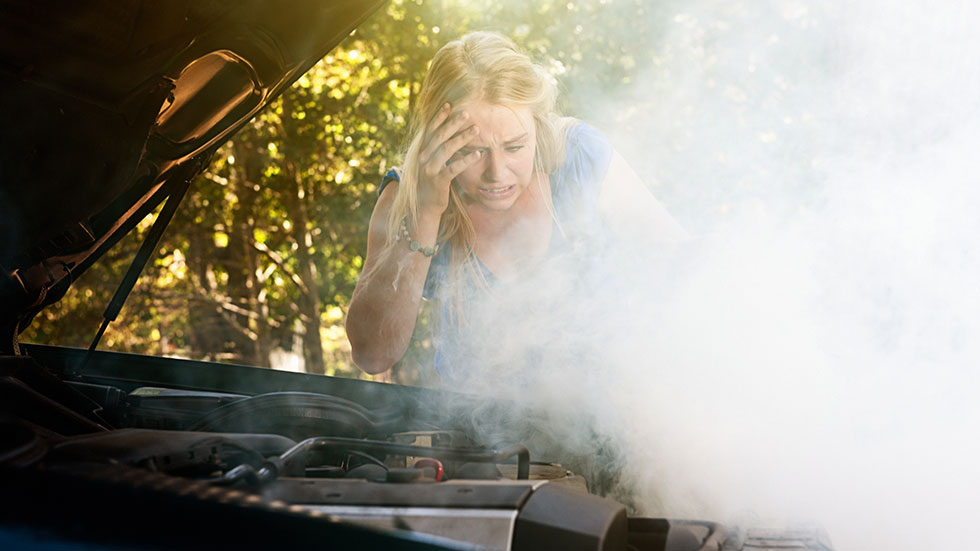Can the Heat Affect Your Car?
Heat can harm your car's battery, tires, and starting. Get essential summer maintenance tips from AAA for hassle-free summer driving

When there’s a heat wave, more vehicle breakdowns tend to happen. Hot summers mean battery failures, air conditioning repairs, tire replacements and a higher demand for emergency roadside assistance. So, proper summer vehicle maintenance is key to avoiding these heat-related issues.
But why does heat cause so many problems for your car? Well, for starters, heat interferes with your car’s ability to operate. Fluids evaporate, circulation is diminished, and pretty much everything has to work a little harder. Here’s what to know about proper car maintenance in the summertime, and what steps you can take as a precautionary measure.

CAN TEMPERATURE AFFECT CAR BATTERIES?
Extreme heat can hinder the chemical processes inside car batteries, making it hard for them to hold a charge and produce enough power. Hot temperatures may even cause your battery fluid to evaporate faster than normal. When this occurs, heat degrades a battery’s interior components, making it more likely to corrode. Plus, the combination of summer heat and typical vibrations caused by driving can break down your battery at an accelerated pace.
HOW DOES HEAT IMPACT CAR TIRES?
Changes in temperature can affect tire pressure, which can cause uneven wear and shorten the life of a tire. Driving on underinflated tires can cause tires to overheat and increase the likelihood of a blowout. This problem becomes even more of a concern when road temperatures are extremely high.
CAN HOT WEATHER AFFECT YOUR CAR STARTING?
In extreme heat, your car may not start because of issues with your fuel. When your engine is too hot, fuel cannot circulate well, making it difficult for your engine to start. To keep your engine running at the correct temperature, make sure to maintain your coolants.

HOW TO AVOID HEAT-RELATED VEHICLE BREAKDOWNS
We asked AAA’s auto experts for advice. It’s recommended you get your car inspected every summer to help prevent heat-related breakdowns. Here’s what our mechanics had to say about summer vehicle maintenance:
Check the battery twice a year
Know how much life your battery has left by asking a mechanic to run a battery test. Fully charged automotive batteries should measure at 12.6 volts or above. Be sure your battery is mounted securely to minimize vibration-induced damage. Clean the battery of any corrosion, particularly around the terminals. If your battery is running low, change it before it dies.
Check tire pressure and condition monthly
Always check tire pressure after your car has been resting. Readings are less accurate when evaluated right after a drive. Don’t forget to check tire wear, too. If the tires look bald or uneven, consider replacing them with safer, new tires.
Maintain engine cooling systems
Cooling systems must work extra hard during hot weather to keep engines from overheating. Coolant protects the radiator and internal engine components. Over time, coolant degrades and needs to be changed. Neglecting this can lead to long-term engine damage. Rubber cooling system components will also deteriorate in extreme heat. Motorists should inspect hoses and drive belts for cracking, bulges, soft spots or other signs of poor condition.
Get an oil change
When your car’s running hot in the summer, the oil circulating around the engine will thin slightly due to the heat. This can mean that some parts of the engine don’t get the protection they need, resulting in increased friction and the potential for engine damage. It’s a good idea to change your car’s oil just before summer, replacing the old fluid with a high-quality, summer-ready alternative.
Top off fluids
Most fluids not only lubricate, but also serve as coolants by carrying heat away from critical engine components. When fluid levels are low, this cooling effect is reduced, and the probability of overheating increases. Check all vehicle fluids including engine/radiator coolant, motor oil, transmission fluid, power steering fluid and brake fluid to ensure they are filled to the appropriate levels. Your mechanic can help you check fluid levels during an oil change.
Pay attention to the air conditioner
A vehicle without air conditioning can be hot and uncomfortable for travelers. If you have noticed a decrease in cooling capacity, have a qualified technician examine your air conditioning system. Air conditioners need regular maintenance to keep them working at their best.
